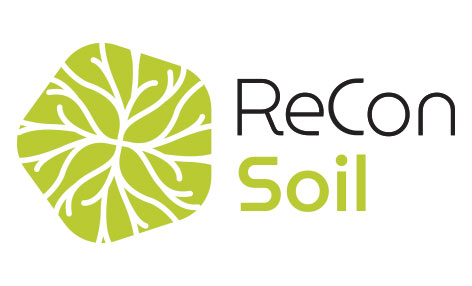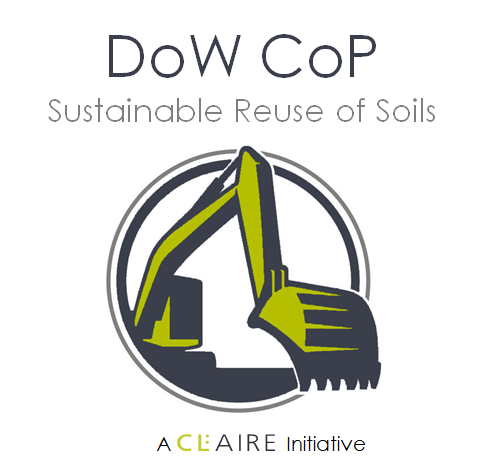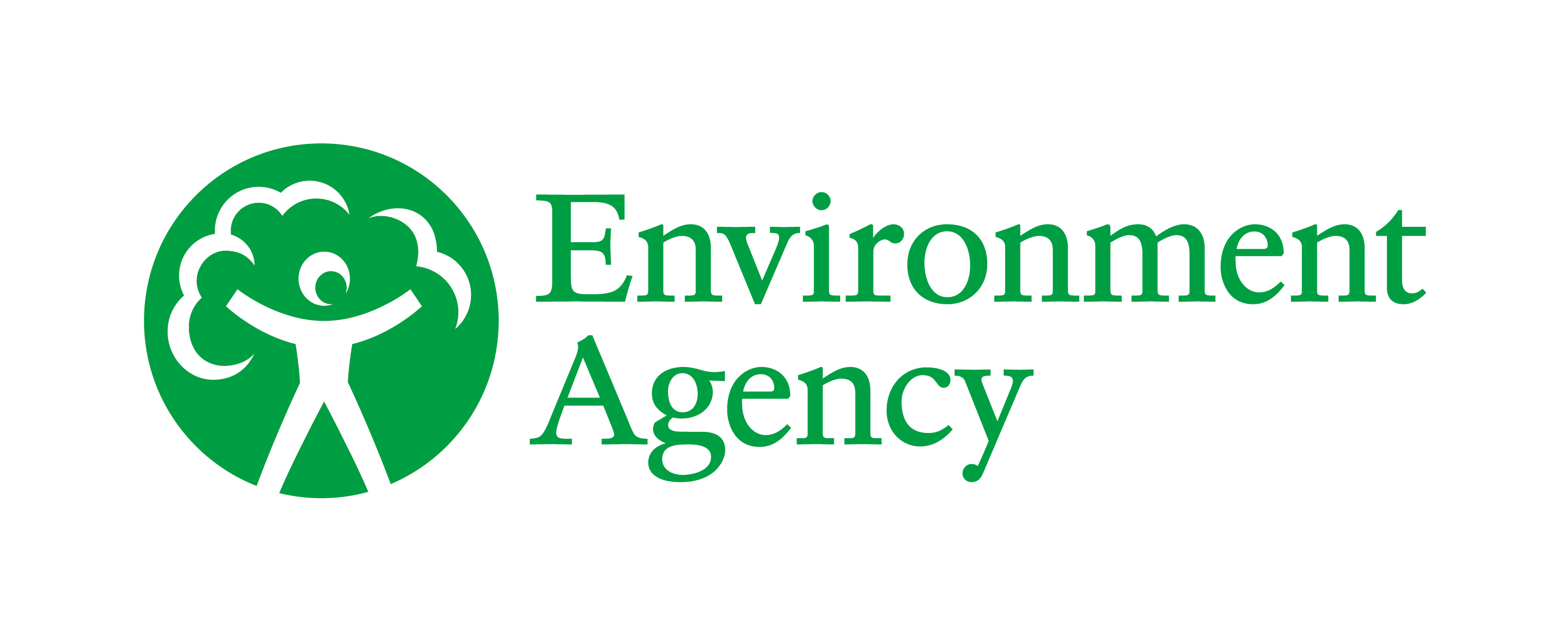Overview
As an integral part of our strategy, CL:AIRE is leading the development of a programme of technical and core-skills training initiatives that are guided by industry requirements, and produced in collaboration with key stakeholders and specialists.
Aim
CL:AIRE is committed to supporting sustainable land management. Our training activities and the creation of a framework for industry education and best practice, enhances learners skills and core competencies.
The training initiatives provide learners with the key skills, knowledge and behaviours that underpin competent performance. It enables individuals to keep pace with legislative, policy and market changes, and provides valuable insights into specific remediation topics.
CL:AIRE training courses are designed to deliver an interactive and pragmatic learning experience, incorporating a number of tools including:
- Theoretical underpinning
- Discussion and practical exercises
- Case studies
- Certified Results
Upon successful completion of each training course, delegates will be awarded a Certificate of Attendance as evidence to assist with Continuing Professional Development (CPD) activity.
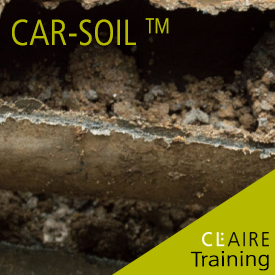 Full day CAR-SOIL for professionals working on and in asbestos-contaminated land (7hours).
Full day CAR-SOIL for professionals working on and in asbestos-contaminated land (7hours).
Course Objectives and Learning Outcomes:
A one day course that will explain in detail the requirements of CAR 2012, HSE ACoP and guidance L143, in the context of the new guidance set out in CAR-SOIL for persons working on sites with soil and/or C&D materials contaminated with asbestos.
To provide a detailed overview of the requirements of CAR 2012, HSE ACoP and guidance L143 and CAR-SOIL in the application of CAR 2012 for sites with soil and/or C&D materials contaminated with asbestos. The course will also provide an insight how these key differences were developed in conjunction with HSE. This course is an essential introductory learning package for environmental and construction professionals engaged on investigating, assessing, remediating and developing sites that are contaminated with asbestos. The course may also be applicable to waste management professionals engaged in recycling C&D materials that may be contaminated with asbestos.
Who should attend the course:
Professionals working on and in asbestos-contaminated land: environmental consultants, asbestos management consultants, remediation contractors, asbestos removal contractors, construction/development, regulators.
About the Trainer:
Steve Forster
Stephen Forster has over 33 years' experience in all aspects of the investigation, assessment and management of asbestos and contaminated land in various roles. He has developed broad-ranging practical experience and expertise in the fields of both asbestos in buildings management and investigation and assessment of asbestos-contaminated land, recycled C&D materials and wastes.
He is Chair of the Joint Industry Working Group on Asbestos in Soil and Construction & Demolition Material and was the author of the industry guidance interpreting the Control of Asbestos Regulations 2012 for application in the assessment of land contaminated by asbestos – CAR-SOIL (CL:AIRE, 2016), developed in conjunction with the Health & Safety Executive.
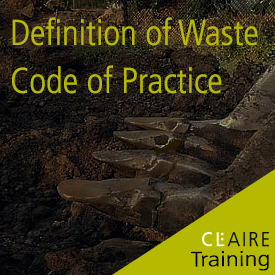 The DoW CoP provides a clear, consistent and efficient process which enables the reuse of excavated materials on-site or their movement between sites.
The DoW CoP provides a clear, consistent and efficient process which enables the reuse of excavated materials on-site or their movement between sites.
Use of the DoW CoP supports the sustainable and cost effective development of land. It can provide an alternative to Environmental Permits or Waste Exemptions.
The DoW CoP enables:
- the direct transfer and reuse of clean naturally occurring soil materials between sites
- the conditions to support the establishment/operation of fixed soil treatment facilities
- the reuse of both contaminated/uncontaminated materials on their site of origin and between sites within defined Cluster projects
Click here to register yourself or someone else for DoW CoP Training.
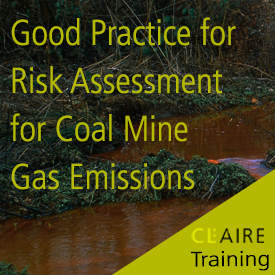 Course Objectives and Learning Outcomes:
Course Objectives and Learning Outcomes:
This course will explain the practical application of the recent CLAIRE guidance on risk assessment for coal mine gas emissions, which was published in 2021.
- On completion of the course delegates should have a good understanding of:
- The different gas hazards that can affect development over old coal mines;
- The influence on mining methods on gas risk;
- The sources of gas in old coal mines;
- The factors that can influence mine gas emissions;
- The mine gas risk assessment process;
- How to deal with future changes and uncertainties within the risk assessment.
Who should attend this course:
Geo-environmental engineers, developers, local authorities.
About the Trainer:
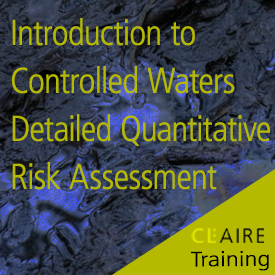 Course Description & Learning Outcomes:
Course Description & Learning Outcomes:
This full day hands-on course provides participants with an introduction to Controlled Waters Detailed Quantitative Risk Assessment (DQRA). The course will be taught through a series of lectures interspersed with practical hand-on sessions using the Environment Agency’s RTM model. Delegates will learn about:
- The UK regulatory context relevant to Controlled Waters DQRA
- Methods/tools for Controlled Waters DQRA and how to choose which are most appropriate for the site being assessed
- Principles of contaminant fate and transport modelling in groundwater
- Data requirements for groundwater DQRA
- Forward versus reverse modelling to assess risks to Controlled Waters receptors
- How to derive site specific assessment criteria for soil and groundwater that are protective of Controlled Waters receptors
- Assessing uncertainty and risk evaluation
Each course is restricted to 10 delegates to ensure good trainer to delegate ratio for the practical work. Delegates should bring their own laptops with the RTM model v3.2 downloaded (see https://www.gov.uk/government/publications/remedial-targets-worksheet-v22a-user-manual ) with the Excel Add-Ins “Analysis ToolPak” and “Analysis ToolPak VBA” enabled.
A certificate of attendance will be provided on completion of attendance.
Who should attend this course:
Geoenvironmental consultants, remediation contractors, contaminated land officers/regulators.
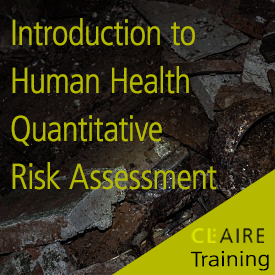 Course Description & Learning Outcomes:
Course Description & Learning Outcomes:
This full day hands-on course provides participants with an introduction to Human Health Quantitative Risk Assessment. The course will be taught through a series of lectures interspersed with practical hand-on sessions using the Environment Agency’s CLEA model. Delegates will learn about:
- The principles behind human health quantitative risk assessment
- What the CLEA model is and does
- How to derive generic assessment criteria (including C4SL) using CLEA
- How the different pathways in CLEA are modelled and key assumptions
- How to use CLEA in Advanced Model for conducting detailed quantitative risk assessments
- Bioavailability and bioaccessibility - how to address using CLEA
- Health based guidance values and an introduction to human health toxicology
Each course is restricted to 10 delegates to ensure good trainer to delegate ratio for the practical work. Delegates are required to bring their own laptops preloaded with the CLEA software version 1.071 (available from https://www.gov.uk/government/publications/contaminated-land-exposure-assessment-clea-tool). .
A certificate of attendance will be provided on completion of attendance.
Who should attend this course:
Geoenvironmental consultants, remediation contractors, contaminated land officers/regulators.
About the Trainer:
Simon Firth is an independent consultant with more than 25 years experience working on land contamination projects in the UK and worldwide. Over that time he has developed significant expertise in human health and environmental risk assessment. Simon is an experienced and enthusiastic trainer and has in depth knowledge of the CLEA model. He has been instrumental in the development of UK generic soil and groundwater screening values derived using CLEA including the CL:AIRE/EIC/AGS GAC, the Defra C4SL and the SoBRA groundwater vapour GAC.
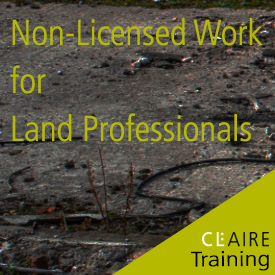 Full day Non-Licensable Work (NLW), including Notifiable Non-Licensable Work (NNLW), inclusive of practical training, for professionals working on and in asbestos-contaminated land
Full day Non-Licensable Work (NLW), including Notifiable Non-Licensable Work (NNLW), inclusive of practical training, for professionals working on and in asbestos-contaminated land
Course Objectives and Learning Outcomes:
A 1 day course that will provide delegates with the knowledge, understanding and skills to undertake work in ground and C&D materials that are contaminated with asbestos, which may be classed as NLW. Successful completion of the course will allow competent persons to undertake this work in accordance with Regulation 10 of CAR 2012 and CAR-SOIL.
The Non-Licensable Work (NLW) with asbestos, including Notifiable Non-Licensable Work (NNLW), training covers the following:
• how to make suitable and sufficient assessments about the risk of exposure to asbestos in the ground
• safe work practices and control measures, including an explanation of the correct use of control measures, protective equipment and work methods
• selection and appropriate use of protective equipment
• waste handling procedures
• emergency procedures
• relevant legal requirements
• circumstances when non-licensed work may be notifiable (i.e. NNLW)
Attainment of the learning outcome for the NLW qualification will be assessed by a multiple choice examination consisting of 30 questions under exam conditions.
Candidates will be required to achieve a score of at least 23 out of 30 (77%) in the examination. Failure to achieve this will result in the candidate being required to re-take the examination under exam conditions on the same day. If a candidate further fails the second attempt then they will be required to re-sit the course in its entirety.
Who should attend the course:
Professionals working on and in asbestos-contaminated land: environmental consultants, ground investigation workers, remediation contractors, construction/development, waste processing and recycling plant operators, regulators.
**IMPORTANT BEFORE BOOKING**
All delegates MUST be able to demonstrate that they have attended an Asbestos Awareness training course which satisfied the requirements of Regulation 10 of the Control of Asbestos Regulations 2012 and the supporting Approved Code of Practice L143 "Managing and working with asbestos", and achieved an examination pass mark.
Whilst demonstration of passing a standard Asbestos Awareness course is acceptable, candidates may benefit from taking the Asbestos Awareness for Soil course, as this will better prepare you for some of the specific issues that arise with asbestos in soils and construction and demolition materials when taking the NLW for soils course.
The Asbestos Awareness training course may have been delivered online or face-to-face and may be evidenced by means of a certificate and/or a signed and authenticated copy of the individual's formal Training Record. If the Asbestos Awareness training course has been taken more than 12 months prior to booking on this NLW course, the certificate and/or Training Record must be accompanied by documented and verifiable refresher training that has been delivered to the candidate in the last 12 months.
If you do not have this evidence or have not already attended an Asbestos Awareness Course please contact the Help Desk.
Course Programme
Duration 6.75 hours (contact time)
Registration, Tea/coffee and informal networking with tutors 8.15-8.45am
Lunch (provided) and informal networking with tutors
Exam Review/close out with tutors 17.15pm - 17.30pm
About the Trainers:
Jonathan Pulfer
Jonathan Pulfer has over 30 years' experience in all aspects of the investigation, assessment and management of asbestos in various roles. He holds the British Occupational Hygiene Society (BOHS) Certificate of Competence in Asbestos (CoCA). He has delivered BOHS proficiency module training for both internal and external candidates for the proficiency modules P401 to P406 inclusive. In addition, he was an approved BOHS specialist invigilator for BOHS modules -P401 and P403. He was a training provider course auditor for IATP and UKATA. Jonathan has also delivered training in asbestos awareness and training for operatives conducting non-licensed work on asbestos.
Steve Forster
Stephen Forster has over 33 years' experience in all aspects of the investigation, assessment and management of asbestos and contaminated land in various roles. He has developed broad-ranging practical experience and expertise in the fields of both asbestos in buildings management and investigation and assessment of asbestos-contaminated land, recycled C&D materials and wastes.
He is Chair of the Joint Industry Working Group on Asbestos in Soil and Construction & Demolition Material and was the author of the industry guidance interpreting the Control of Asbestos Regulations 2012 for application in the assessment of land contaminated by asbestos – CAR-SOIL (CL:AIRE, 2016), developed in conjunction with the Health & Safety Executive.
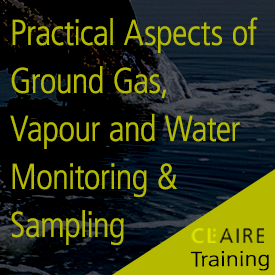 This full day course will provide participants with an overview in the following: -
This full day course will provide participants with an overview in the following: -
- Introduction and understanding the role of monitoring & sampling within the overall scope of works including Conceptual Site Model, Safety, Health, Environment and Quality.
- “How to” perform gas and vapour monitoring & sampling.
- “How to” perform water monitoring & sampling.
- The role of supporting suppliers, record keeping and the “dark arts”.
Who should attend this course?
This course is ideal for Early Years Practitioners including geo-environmental consultants, remediation contractors and contaminated land regulators who have an introductory knowledge of ground gas, vapour, and water monitoring & sampling which they wish to develop.
Course Prerequisites
Delegates should bring their experience and questions as the day will be interactive and questions as we go. Example equipment will be available on the day to view but delegates can bring their own equipment if they wish.
About the trainer
Paul Brennan is an independent Contaminated Land practitioner with over 30 year’s experience in the site investigation, remediation, and waste management industries. Initially working for an independent contaminated land laboratory before setting up Environmental Monitoring & Sampling Services Limited in 2006 to provide activities including environmental monitoring and sampling, collection of factual data, laboratories liaison, walkover surveys, project management and on-site supervision & management during site investigation, remediation, and demolition contracts.
Paul has worked on a variety of projects from clean and food production facilities to sites with significant contamination such as gasworks.
Reading
CL:AIRE Training Centre
Fountain House
2 Queens Walk
Reading RG1 7QF
Manchester
Online
CL:AIRE Membership Discounts
An exclusive discount is available to CL:AIRE Members (25% for Principal & 15% for Supporter) on all CL:AIRE events and training courses.
CL:AIRE also run tailored, in-house courses for members organisations upon request.
Further Information
Please note that delegates booking less than 30 days in advance of the event/training course date must pay by debit/credit card at time of booking. Please make sure you are registered on the website and logged in before trying to purchase.









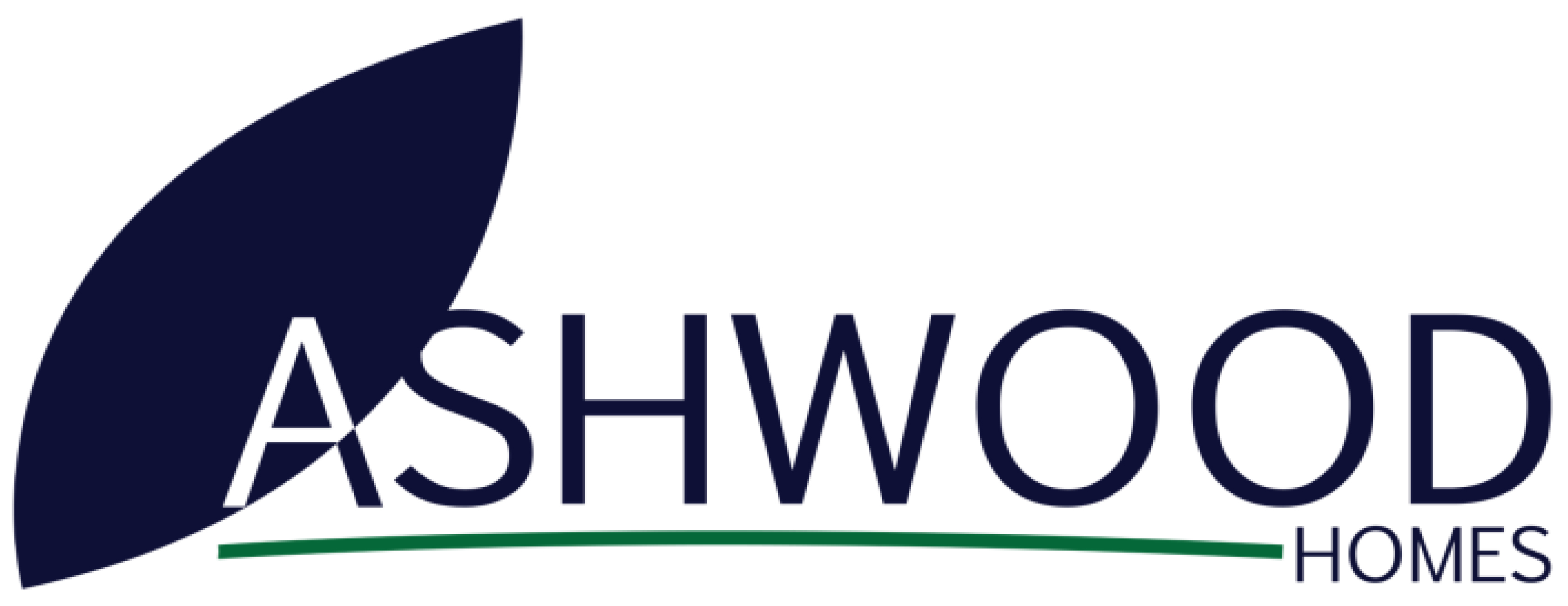

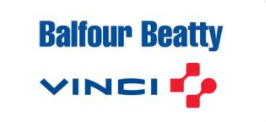
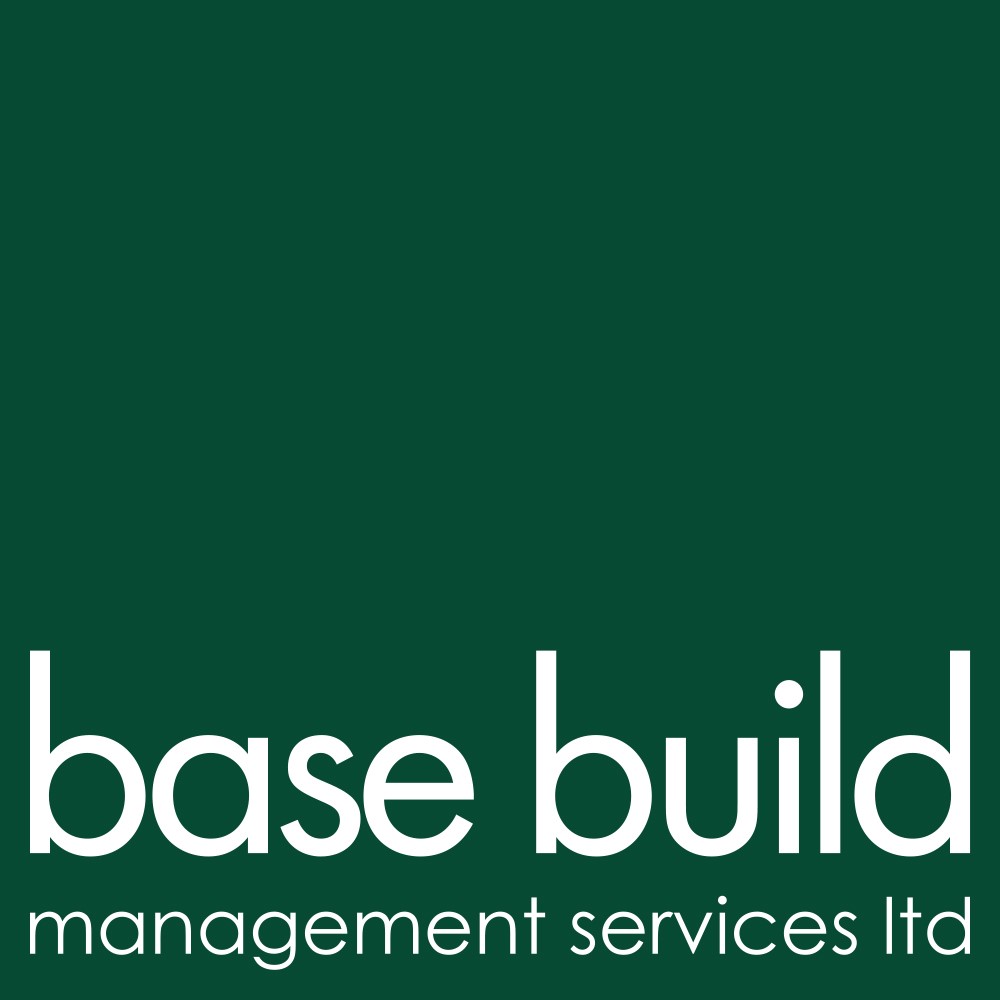


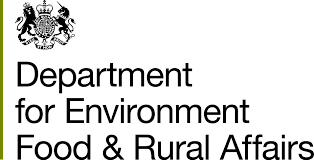
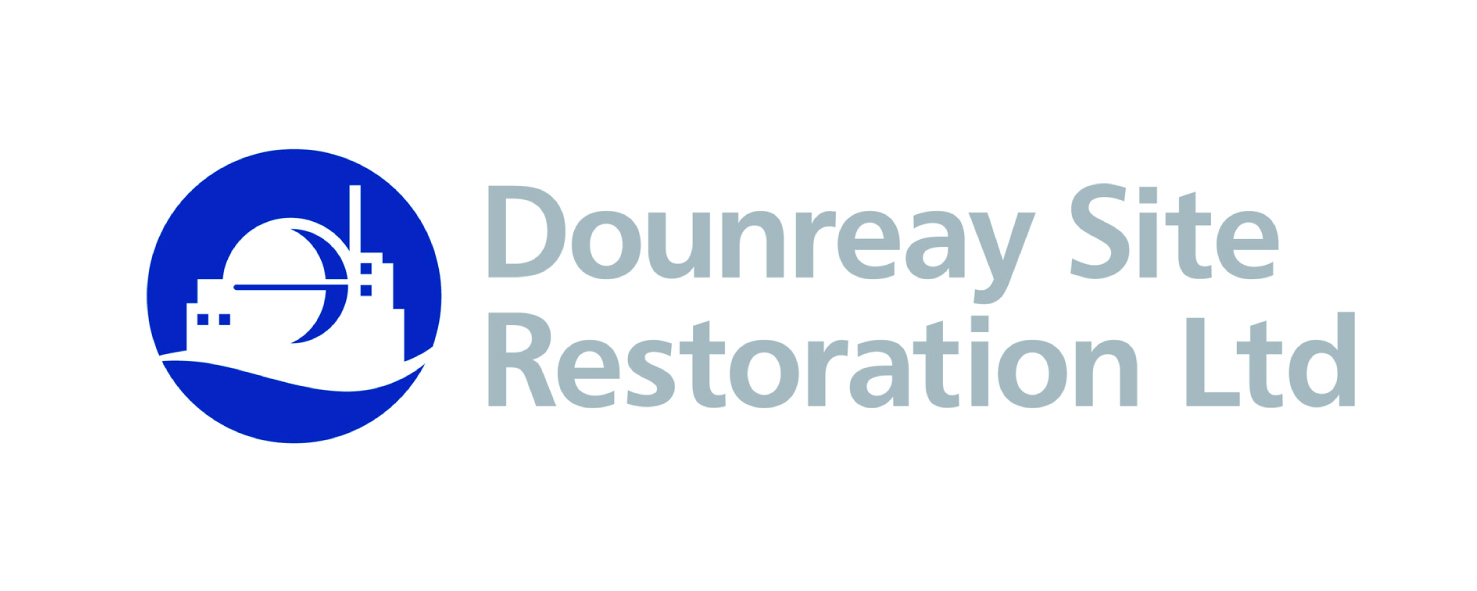





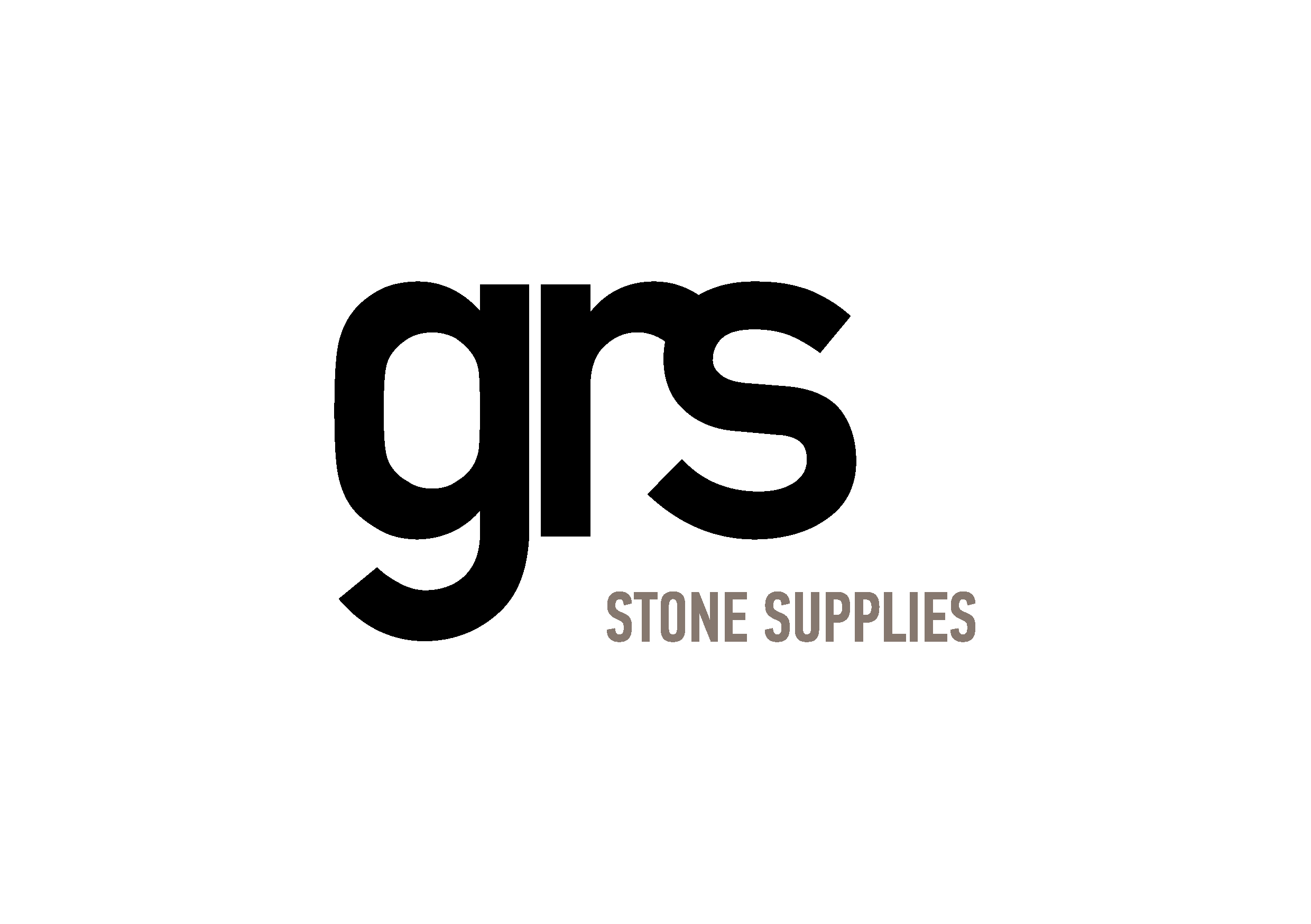
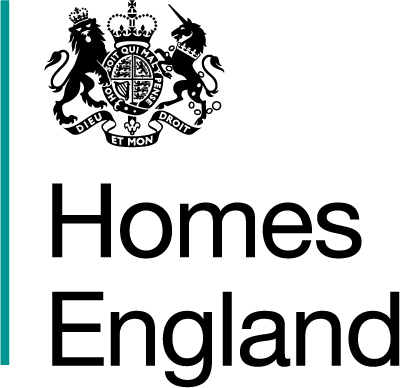









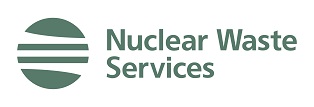






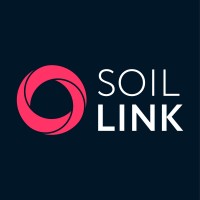
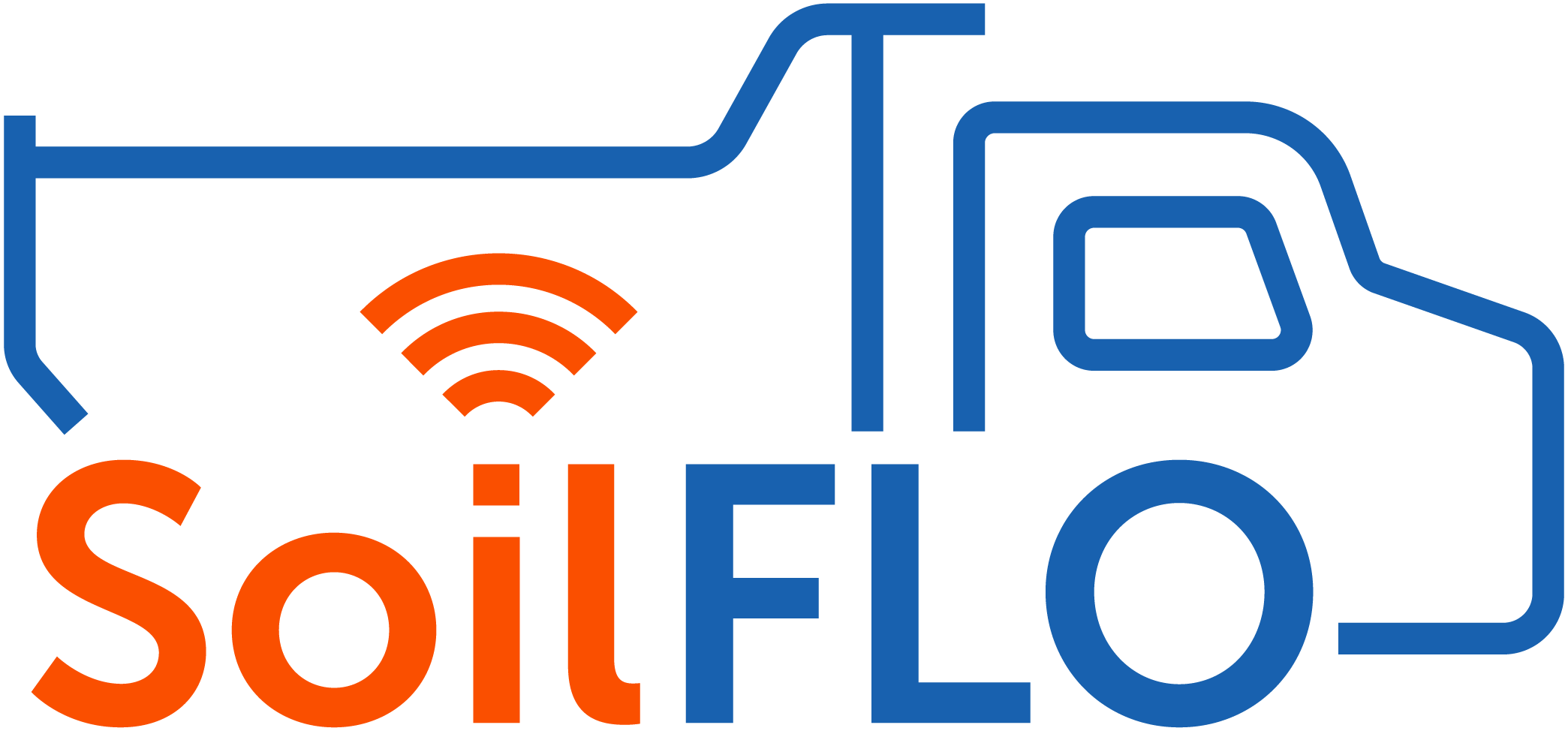
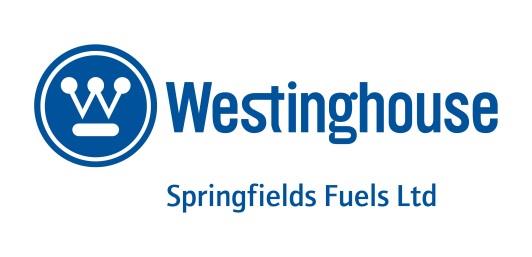

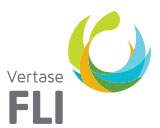
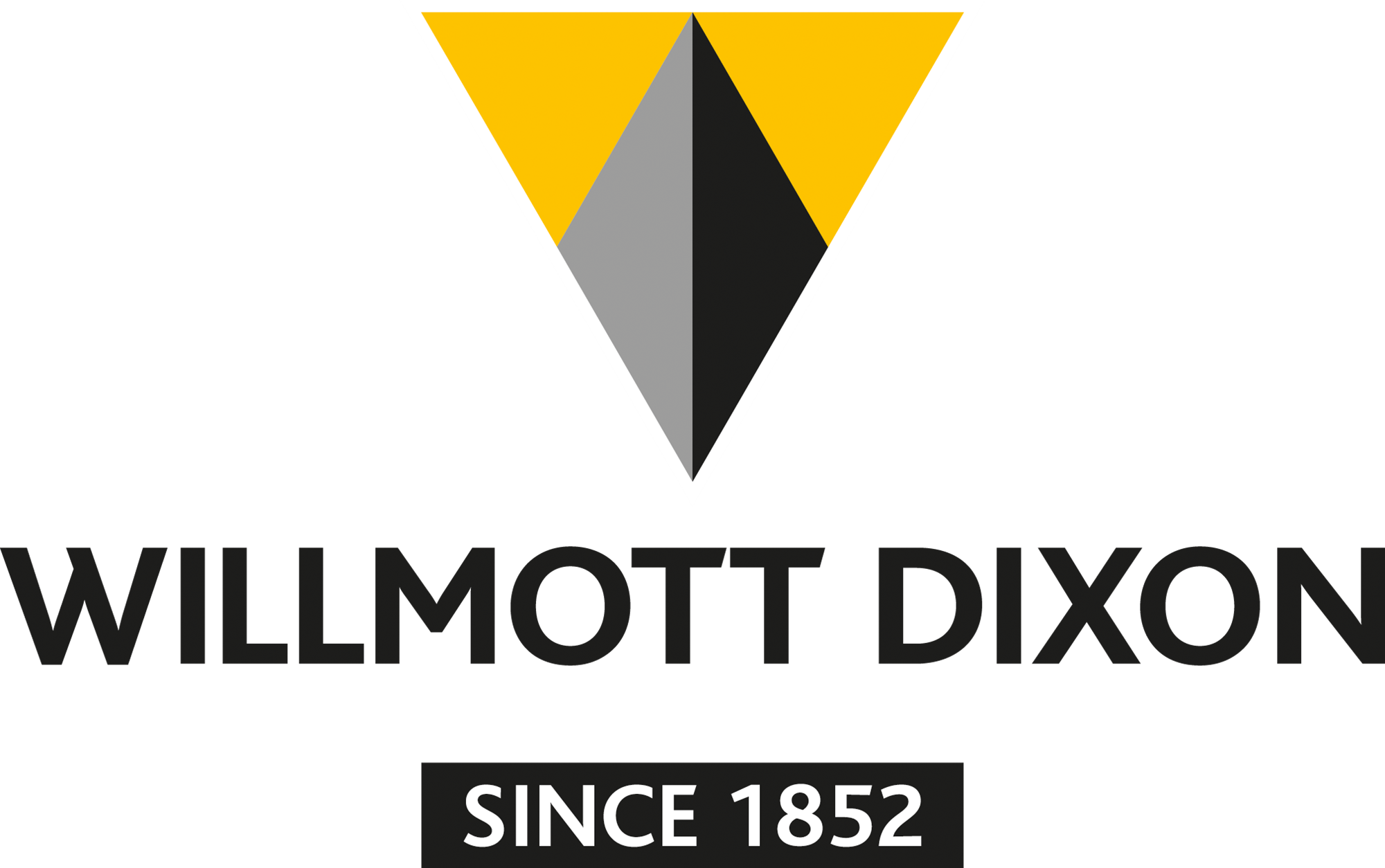





 Full day CAR-SOIL for professionals working on and in asbestos-contaminated land (7hours).
Full day CAR-SOIL for professionals working on and in asbestos-contaminated land (7hours). The DoW CoP provides a clear, consistent and efficient process which enables the reuse of excavated materials on-site or their movement between sites.
The DoW CoP provides a clear, consistent and efficient process which enables the reuse of excavated materials on-site or their movement between sites. Course Objectives and Learning Outcomes:
Course Objectives and Learning Outcomes: Course Description & Learning Outcomes:
Course Description & Learning Outcomes: Course Description & Learning Outcomes:
Course Description & Learning Outcomes: Full day Non-Licensable Work (NLW), including Notifiable Non-Licensable Work (NNLW), inclusive of practical training, for professionals working on and in asbestos-contaminated land
Full day Non-Licensable Work (NLW), including Notifiable Non-Licensable Work (NNLW), inclusive of practical training, for professionals working on and in asbestos-contaminated land This full day course will provide participants with an overview in the following: -
This full day course will provide participants with an overview in the following: -